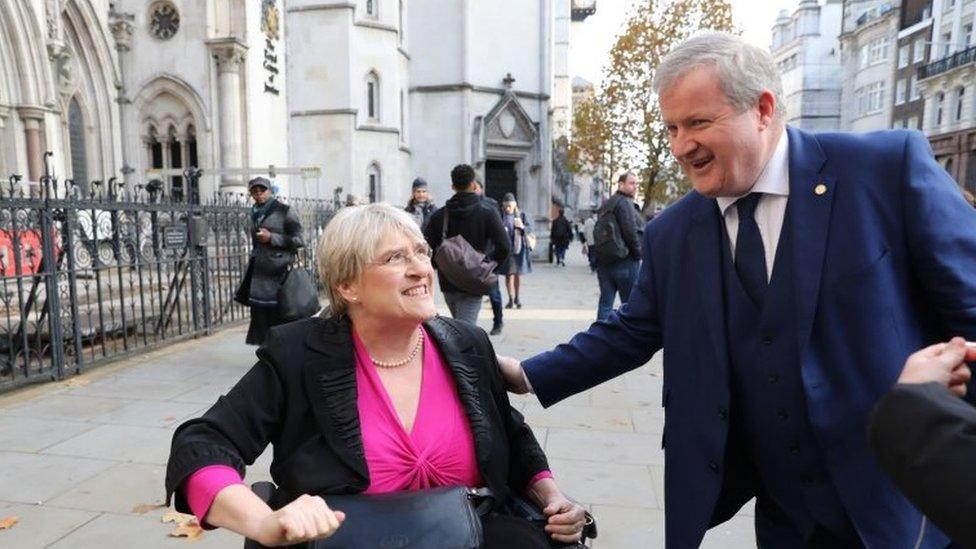General election 2019: 'Not a two horse race' says Willie Rennie
- Published
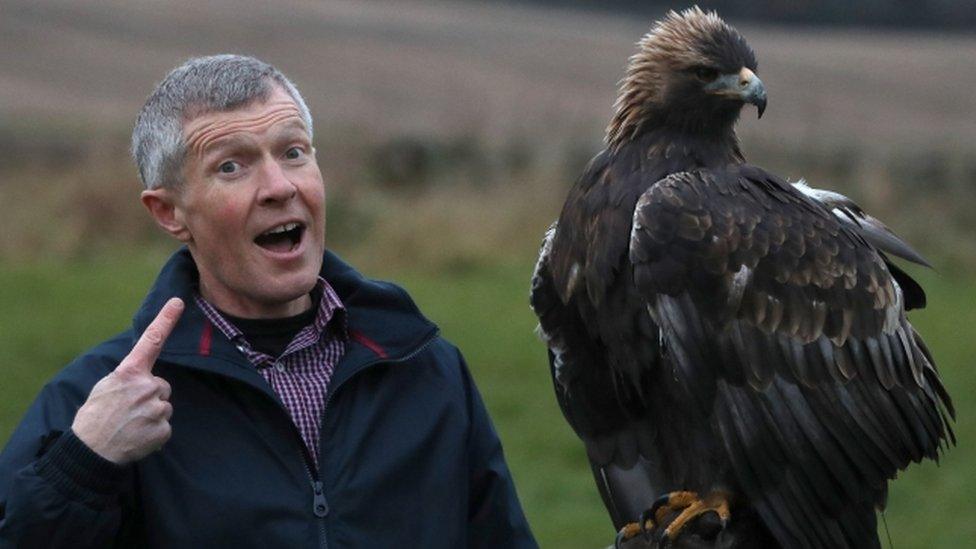
Willie Rennie said his party has a "unique" position of wholeheartedly opposing both Brexit and Scottish independence
December's general election is "not a two horse race" between the Conservatives and Labour, Scottish Lib Dem leader Willie Rennie has insisted.
The Lib Dems and the SNP have launched legal challenges against ITV over its leaders' debate, a head to head contest with Boris Johnson and Jeremy Corbyn.
Mr Rennie said neither man was "fit to be prime minister", making Jo Swinson a "pretty good bet" in comparison.
And he said his party was "unique" in opposing both Brexit and independence.
The Scottish Lib Dem leader was taking part in a live interview and phone-in session on BBC Radio Scotland, with the SNP, Conservative and Labour leaders to follow in the coming weeks.
Mr Rennie said his party were "the challengers" in many seats, having performed well in the European elections earlier in 2019.
He said: "Labour and the Tories constantly want to write us out of the story. In many seats in Scotland and right across the UK, we are the party that can stop Brexit and in Scotland can stop independence.
"It is important that people understand it's not a two horse race between Labour and the Conservatives. The Lib Dems are a growing force, we have gained votes right across the country.
"People need to understand that we want to stop Brexit and independence, we are the only party that provides that unique choice in British politics."
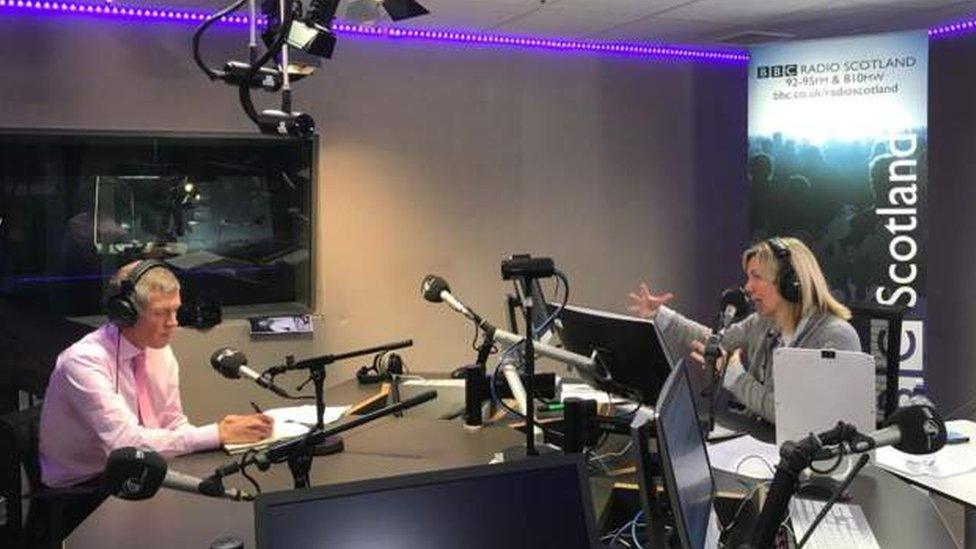
Willie Rennie was the first of Scotland's party leaders to take part in a BBC radio phone-in
Asked if there was a realistic prospect of the Lib Dems actually winning the election - having taken only 12 seats in 2017 - Mr Rennie said politics was in an "incredibly volatile" state.
He said: "Nobody would have believed Donald Trump would ever become the US President. Nobody would have believed we'd spend three years debating leaving the EU. These are volatile times - and at time like that its important to have a party that speaks with clarity.
"What we're saying very clearly is that Jeremy Corbyn and Boris Johnson are not fit to be prime minister. We need to stop Brexit, and if people want to stop Brexit they need to back the Liberal Democrats."
Legal debate
ITV is set to screen the first televised debate of the campaign on Tuesday, a head to head contest between Mr Corbyn and Mr Johnson - but is facing legal challenges from both the SNP and Lib Dems.
Mr Rennie said Ms Swinson and First Minister Nicola Sturgeon could bring "an awful lot of colour and difference to the discussion".
SNP Westminster leader Ian Blackford said the head to head debate was not representative of the picture in Scotland, where 62% of voters backed Remain in 2016 and where the SNP has finished on top in successive elections.
He said the legal challenge was about "fairness for every voter and viewer across the country who have a right to see the real choice at this election on that debate stage".
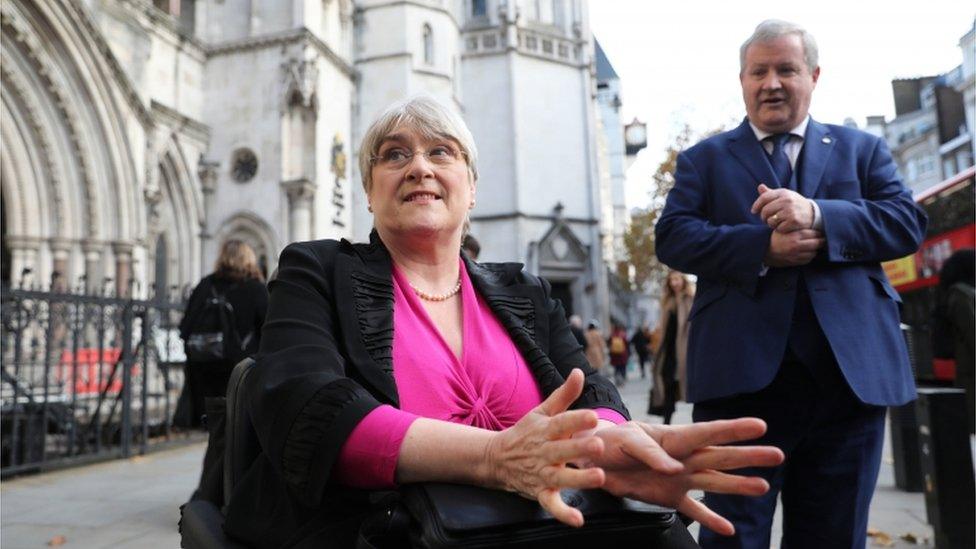
Lib Dem President Sal Brinton and SNP Westminster leader Ian Blackford are both in court for the legal challenge
Mr Blackford also said the SNP was "the main challenger in every Tory-held seat" north of the border and "the only party that can beat the Tories in Scotland".
He said: "As recent election results and polls have shown, Labour and the Lib Dems are too weak to take the Tories on in Scotland. The SNP is by far the strongest Remain party, the only party that can beat the Tories, and the only party offering people in Scotland a choice over our future."
Meanwhile Jackson Carlaw said that "only the Scottish Conservatives have the strength" to "fight back against the SNP" in Scotland.
The interim Scottish Tory leader said: "The SNP have had more than a decade in power. Their obsession with independence has been put before the everyday business of government - with the result that school standards have dropped, legal NHS waiting time guarantees are being missed, and the police service is being stretched to breaking point."
Scottish Labour meanwhile has promised to bring about a "transformation" of employment rights with a "revolution in the workplace".
Leader Richard Leonard said: "Scottish Labour seek to place workers, the wealth creators, into the driving seat of our economy. Our plan will allow workers dividends, so they can enjoy the wealth they create, not just anonymous shareholders.
"An end to zero-hour contracts and a £10 an hour minimum living wage will mean a pay rise for hundreds of thousands of people in Scotland, and we will release our trade union movement from the chains into which it was placed by the Tories' anti-democratic Trade Union Act."
- Published15 November 2019
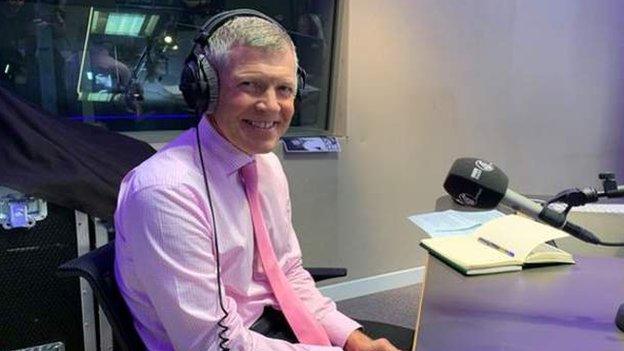
- Published18 November 2019
